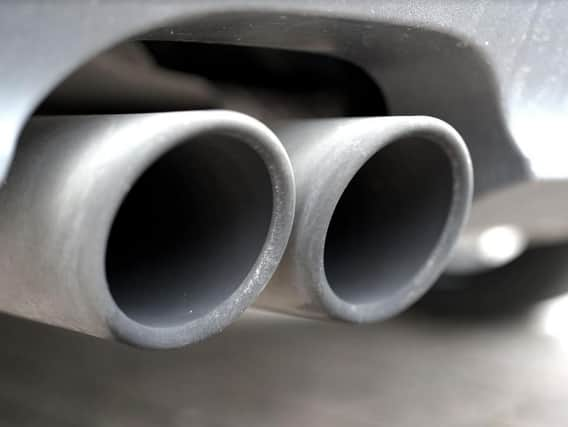If you drive a diesel car, you need to prepare for THIS coronavirus complication, according to experts


James O’Malley, of Select Car Leasing, is warning diesel drivers to be aware of something fitted to their cars called a Diesel Particulate Filter, or ‘DPF’.
And he’s urging owners – who might find themselves marooned in one place over the coming weeks – to maintain their DPFs by ensuring their cars get a good long run out rather than short trips to the nearest shop.
Advertisement
Hide AdAdvertisement
Hide AdIf not Britain might have a ‘DPF failure epidemic’ as well as a global pandemic to worry about.
Mr O'Malley said: “There are real benefits of owning a diesel car. They’re known to rack-up huge mileages and the engines themselves are often blessed with lots of torque, making them great family load-luggers.
“Chances are your diesel has a DPF fitted into the exhaust. These became mandatory on all new diesels in the UK in 2009, and many cars – particularly automatics and 4x4s – were fitted with DPFs long before that.
“The filter does a brilliant job of stopping soot passing into the atmosphere, making your car more eco-friendly.
Advertisement
Hide AdAdvertisement
Hide Ad“But the trade-off of to enjoying a frugal diesel is that the soot caught in this filter has to be ‘burned off’ in order to regenerate the DPF.
“And the best way to burn off the soot is to make sure you regularly treat your car to a good 30 to 50-minute blast on the motorway at sustained speeds.
“Short runs are the sworn enemy of the DPF.
“However, due to the coronavirus outbreak it’s our worry that many diesel owners will end up using their cars for short, sharp journeys to and from the nearest supermarket or pharmacy rather than cars being used for long commutes.
“Doing lots of short 10 to 15-minute drives, and only one long run a week, simply isn’t enough.
“We could end up with a DPF failure epidemic on our hands.”
Advertisement
Hide AdAdvertisement
Hide AdThe DPF is normally able to regenerate itself when the exhaust reaches a certain temperature, hence the need for a long motorway run to get the system nice and hot.
Often your car’s ECU – the internal computer – will try to aid the process through what’s known as ‘active regeneration’, where extra fuel is injected to raise temperatures further.
But that doesn’t always rectify the issue.
You could end up shelling-out more than £100 at a garage for a process known as ‘forced regeneration’ in order to clear the DPF.
Mr O'Malley added: “There’s a number of ways you’ll know you’ve got a DPF problem.
Advertisement
Hide AdAdvertisement
Hide Ad“You might see a filter-shaped warning sign on your dash, you might notice stilted performance or strong smell from the exhaust, or your car might even go into limp mode.
“It might not start at all.
“And remember that if there’s a warning light on the dash, it’s an automatic MOT fail.”
It pays to maintain your DPF as a new one could set you back up to £3,500, leading to write-offs for older motors.
You should also be wary not to turn your car’s engine off when it’s in the middle of a DPF regeneration, as you’ll stop the process and cause further complications.
Advertisement
Hide AdAdvertisement
Hide AdYou’ll know when a regeneration is taking place as you’ll typically hear a slight change in engine note, the cooling fans might kick in, and you might notice an increase in idle speed and a hot smell coming from the exhaust.
Mr O’Malley said: “The regeneration itself can take up to 10 minutes. So if you know it’s taking place, keep driving – even if you have to keep doing laps around the block until it’s complete!”
To find out more about which type of fuel is best for you, check out Select Car Leasing’s handy guide here.